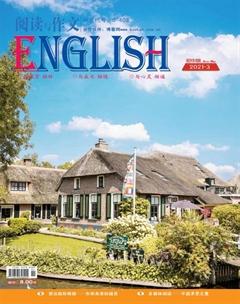多媒体阅读
Two years ago, I had a very straightforward reading pattern. Every few days, Id read a book. I would immerse myself in its characters and storylines, swim in its style, snatch up every opportunity throughout the day to return to its enveloping world. Then I would finish it, and start another one.
Things were so simple then.
I wish I could blame it on the Christmas eReader, but my evolution into schizophrenic multimedia literature butterfly started long before it landed in my lap–via iPod and Audible, Twitter and Gutenberg, and brick-like new-writing magazines that take weeks to digest. My reading has taken on a strangely driven, guilty quality, as I try to justify the cost of all those subscriptions and all that hardware by consuming fiction in an unprecedentedly multiplicitous and simultaneous way.Secretly, I long to return to a world in which I had a loving, stable relationship with one paperback at a time.
A day in my life as a literary butterfly starts at 7:30a. m., with a few select paragraphs from the short story in last weekends Sunday papers over a morning cup of tea. By 8:30a. m., Im fully plugged into my latest audiobook as I stride to the station. On the tube, its the rush to plough through the story and poems in the latest, expensively imported edition of the New Yorker, before next weeks lands on my mat. Throughout the day, I might catch up on a Twitter novel every few minutes, or check out the latest freemium offering from an enterprising new author. Back on the tube, I crack out the eReader, scroll past the 100 free books I havent even dipped into, and try to settle into the download I just had to buy to see if it worked. Finally, at bedtime, I open my book—my real, smelly, prefix-free book—and fall asleep, waking six hours later with ink on my face.
A recent study by Stanford Universitys Department of Psychology has (in the time-honoured fashion of research) told us something we know all too well: we children of the long tail economy pay the price of unlimited choice with the misery of the always-something-better-out-there syndrome. “Even in contexts where choice can foster freedom, empowerment, and independence”, says the studys author, Professor Hazel Markus, “it is not an unalloyed good. Choice can also produce a numbing uncertainty, depression, and selfishness.”
As psychologist Barry Schwarz puts it in his brilliant TED Talk on the Paradox of Choice, “theres no question that some choice is better than none, but theres some magical amount. I dont know what it is. Im pretty confident that we have long since passed the point where options improve our welfare.” And its true: I love the fact that I can download some great new authors self-published PDF onto my screen, that I can carry the electronic Riverside Chaucer wherever I go, that I can access almost any obscure old tome from Amazon marketplace and get the cream of the fictional crop delivered quarterly to my door. But its a long time since I experienced the intense pleasure of leisurely browsing; the careful selection and devoted reading of a single text. For me, reading has become a fractured competitive sport.
There is joy in this cornucopia of ways to consume quality literature, but there is also anxiety and loss—I feel like an alcoholic pushed into a permanently stocked bar, and I cant even taste the merlot because Im trying to down a tequila and sip a martini at the same time. Im dying to return to the mono-media of paper and glue. But Im just not sure that Im strong enough to resist the lure of that Dickens in my pocket; the new Jim Crace short story nestling in that mega-zine.
两年前,我的阅读方式很简单。花几天时间读一本书。我会把自己沉浸在人物和故事情节中,畅游于书的写作风格中,每天只要有时间,我都会回到那个被封存起来的世界。读完这本后接着开始读另一本。
那时候就那么简单。
我希望我能归咎于圣诞礼物——电子阅读器,但早在拥有电子阅读器前,我就开始变成了一个“精神分裂”的多媒体文学读者——通过随身听、在线听书网站、推特和古登堡网站,还要花几个星期来消化砖头般的新作品杂志。我的阅读变得多而杂乱,为了试着证明自己在订阅书籍和购买硬件设备方面的花费物有所值,我以前所未有的多样化、同步的方式阅读书籍。其实我心里渴望回到从前的世界,每次只与一本书建立一段充满爱而稳定的关系。
我这只“文学蝴蝶”的一天从早上七点三十分开始,泡一杯茶,看几段上周末周日报纸上的短篇故事精选。八点三十分,在赶往车站的路上,我会戴上耳机,听最新的电子书。在地铁上,我粗略浏览最新一期昂贵的进口版《纽约客》上的故事和詩歌,为了赶在下周新刊到达前看完。这一天里,可能每过几分钟我就会查看推特上的小说,或在免费增值网站上查看某位野心勃勃的新作家的作品。搭地铁回家时,我拿出电子阅读器,忽略那100本还没看过的免费书,看看我购买的书下载成功没有。最后,睡前,我打开书——我那真正的书,有着特殊味道、不带前缀(e)的书——然后睡着,六个小时后醒来,墨水印在脸上。
斯坦福大学心理学院最近的一项长期研究告诉我们早就熟知的研究结果:我们这些成长于“长尾经济”时代的孩子要为大量的选择付出代价,我们的症状是“总有更好的东西”。“选择给了我们更多的自由、权力和独立性,即使在这样的前提下,”该研究的发起人黑泽尔·马库斯教授说,“这也不完全是件好事。选择还会带来令人麻木的犹豫、压抑和自私。”
正如心理学家巴里·施瓦茨在TED上那场关于“选择的矛盾”的出色演讲中所说,“有选择当然比没选择要好,但这其中有着某个奇妙的数量。我不知道是多少。我确信我们的选择早就多得有损自身利益了。”确实是这样:我很高兴可以下载一些优秀的新作者自己推出的PDF版作品到我的电子设备上,可以随身带着电子版的《河畔乔叟》,可以在亚马逊商城买到任意一本晦涩的旧著作,可以订阅一些精品小说(每三个月送货上门一次)。但我已经很久没有感受到闲适地翻阅书本的乐趣;细心挑选并身心投入地阅读一本书。对我来说,阅读已成了一场碎片化的竞技比赛。
以这种丰富多样的方式阅读优秀的文学作品固然能获得愉悦感,但同时也有忧虑和失落——我感觉自己是一个酗酒者,被推进了藏酒室,但我连梅洛的味道都尝不到,因为我在咽下龙舌兰酒的同时又想尝一口马提尼酒。我渴望回到由纸张和胶水组成的单一媒体时代。但我不确定自己能否抵抗口袋里的狄更斯电子书和电子杂志上吉姆·克雷斯的新短篇小说的诱惑。

